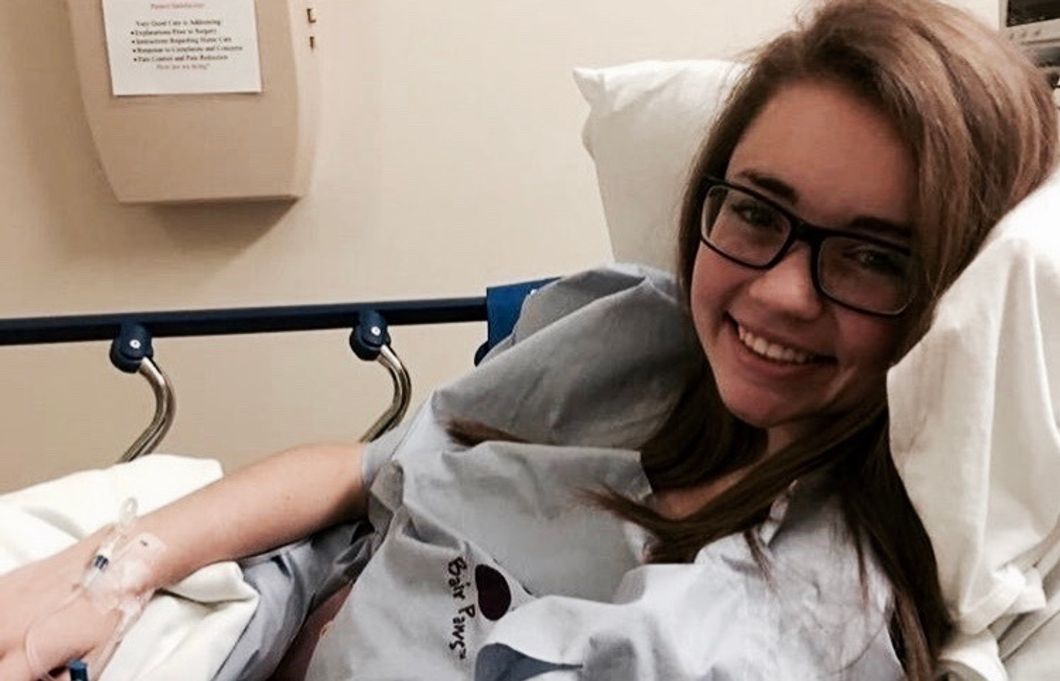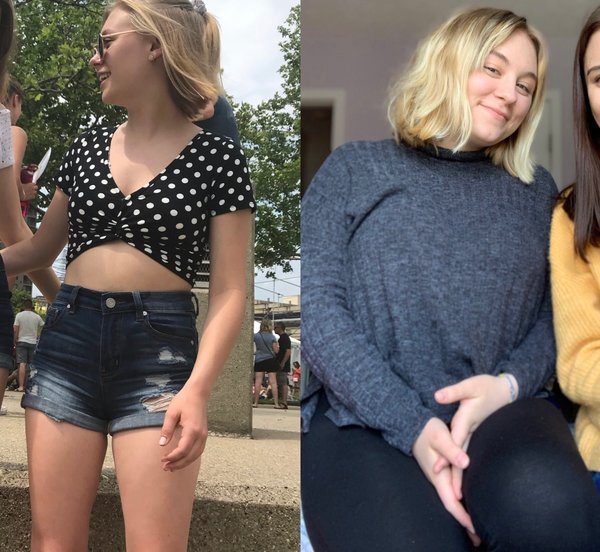Before I moved into my dorm at the University of Kentucky as a college freshman, I was a bundle of nerves for countless reasons. I am an out-of-state student, so my family was going to be further away from me than they ever had been, and I had never lived on my own for more than a week. However, one of the things I was most nervous about was my invisible illness.
I was diagnosed with a connective tissue disorder called Ehlers-Danlos Syndrome (EDS) when I was 13 years old. It impacts every part of my body, making me extremely tired, weak, and more prone to things like joint dislocations. Going into college, I had already had two knee surgeries. I was so scared about getting hurt again, getting accommodations, and being able to succeed knowing I was sick.
Just by looking at me, you most likely would not realize something is wrong with me.
When I scheduled my appointment with the Disability Resource Center (DRC) at UK, I was not sure what type of things they would be able to do for me. Luckily, they were extremely helpful and understanding. They offered me numerous services to help me succeed. Among those being a WildCab, a service where I could be driven to my classes, and a note saying I could be late to class if I was not able to walk a far distance in a short amount of time (I had a class across campus that I had to get to in 10 minutes every Monday, Wednesday, and Friday my first semester). I felt relieved.
My relief was short-lived. I knew that it was not anyone's business but my own, but I felt like if I used some of the services that were offered to me, I would be judged since it does not look like anything is wrong with me.
If I walked into my class of 20 students late every day, I knew how that would look. If I called a WildCab to come and get me, a seemingly able-bodied girl, to drive me to a place that I could walk to in five minutes, people might assume I am lazy. The simple act of giving a professor a note from the DRC can be very intimidating since I look normal. I was never sure how my professors would react since some are very strict on attendance policies.
It did not really seem worth it to me at the time, being brand new to college and all — I did not really want to rock the boat. I know that these services are to help me, and I should not think twice about using them, but it's much easier said than done. It is hard enough to fit in at a school with over 30,000 students without drawing more, possibly negative, attention to myself. Although I did not want to use these resources right away, I knew that if I could not push myself to do things on my own, they would be there for me, which was comforting.
One would think I am silly for feeling this way, but I feel this way due to experience. I thought that people would stop accusing me of faking when I reached college, but whenever I called off of my on-campus job for needing time to rest, I was told I need "to be there for my coworkers."
If I have learned anything about myself and my illness throughout my first year of college, it is that I need to put myself and my health first.
I am not alone with my invisible illness, and my doctors, as well as I, know that my condition is very real and it should be treated as such by everyone — including myself. I do not need to compromise my own experience because of the opinions of others. Also, I am not alone. There are plenty of people who have invisible illnesses at UK. You'd never know it by looking at them, though. My advice to everyone is to look beneath the surface of those around you. There is usually more to people than what you would expect.


















